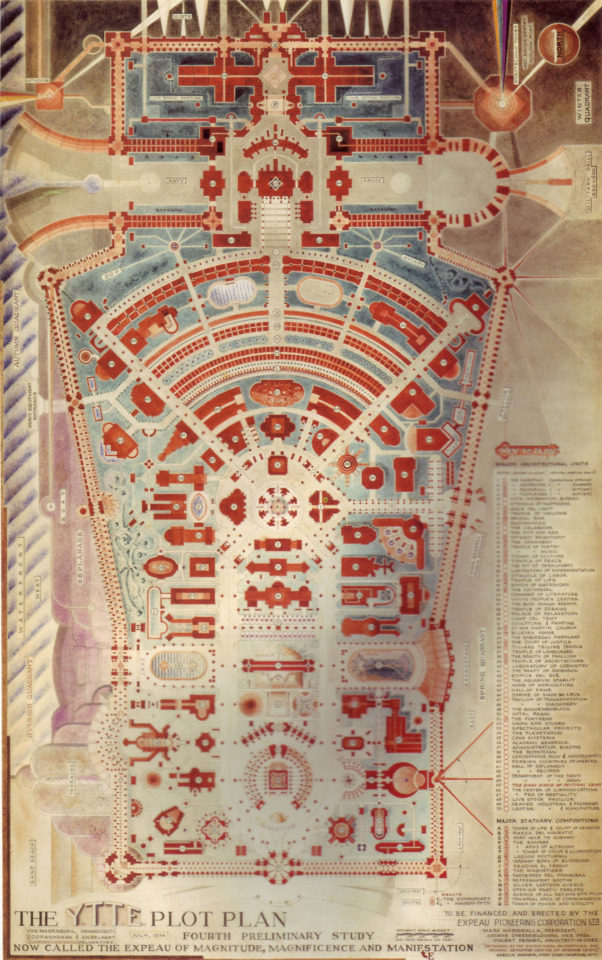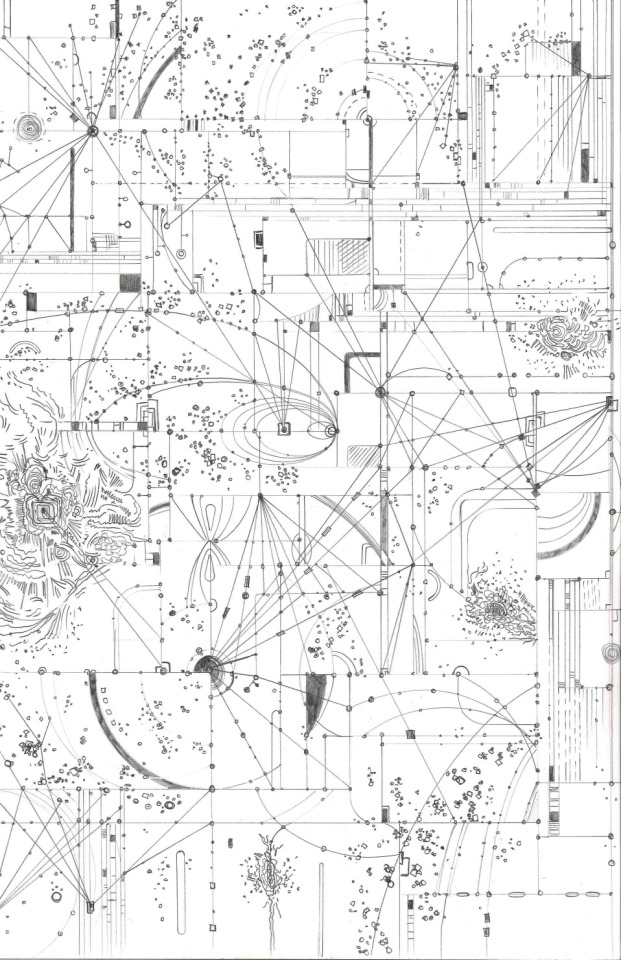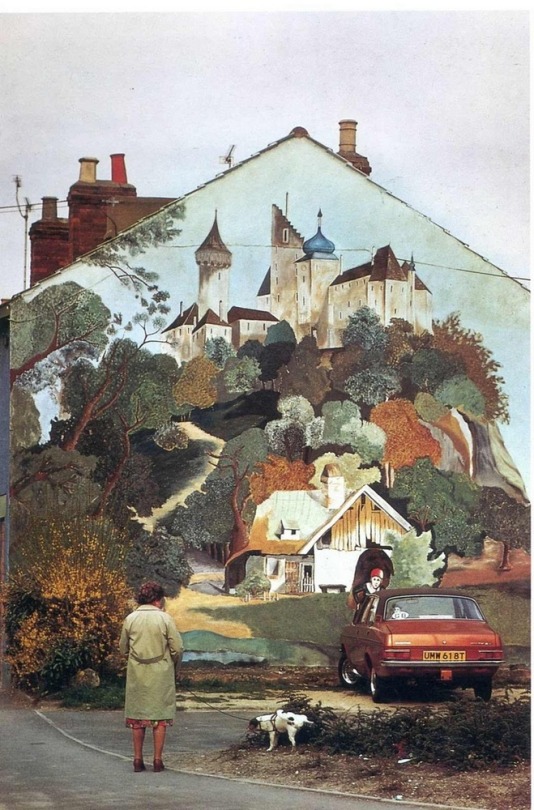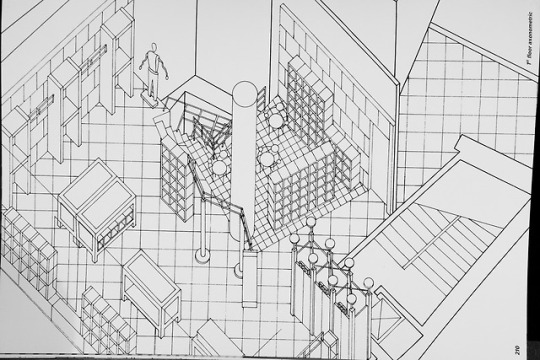Photo

Guanyu Xu “Temporarily Censored Home”
Facing North, Looking West, 2019
7 notes
·
View notes
Photo

Lamune Onsen, Taketa, prefectura de Oita. Terunobu Fujimori, 2005
51 notes
·
View notes
Photo

Marino Auriti with the Encyclopedic Palace, Kennett Square, Pennsylvania, 1950s.
84 notes
·
View notes
Photo

Matthew Wong (Canadian, 1984-2019), Winter Nocturne, 2017. Oil on canvas, 48 x 60 in.
402 notes
·
View notes
Photo




Takefumi Aida
’ It’s impossible to make architecture move, although i’d like to’ T. Aida
Aida started with ‘silence’ in earlier seventies, toying with ‘playfulness’ metaphor for a series of residential projects structured from images of child’s building blocks. But from mid-eighties onwards, he purposes a system of architectural ordering _ fluctuation_ applying this on its metaphorical usage more than in its physics terms.
Moving from the theory of fluctuation to fluctuating architecture Aida manages the perception of movement created by people’s passage through his work with a carefully controled sequence of unfolding views that the visitors generate as they move.
He has applied this concept of (yuragi) ‘fluctuation’ to civic spaces, mixed-used architectures and to one of Tokyo’s modern sacred sites, theTokyo Memorial Park as you can see on images above.
Keep reading
267 notes
·
View notes
Text

Rob Scholte (Dutch, b. 1958), Overspel [Adultery], 1986. Oil on canvas, 200 x 155 cm.
2K notes
·
View notes
Photo

Europa’s Surface
This enhanced-color view from NASA’s Galileo spacecraft shows an intricate pattern of linear fractures on the icy surface of Jupiter’s moon Europa. Newer fractures crosscut older ones, and several wide, dark bands are visible where the surface has spread apart in the past.
The scene also contains several regions of “chaos terrain,” where the smooth surface has been disrupted into jumbled blocks of material.
Credit: NASA/JPL-Caltech/SETI Institute
370 notes
·
View notes
Photo

A II (Construction A II) by László Moholy-Nagy, 1924, Guggenheim Museum
Solomon R. Guggenheim Museum, New York Solomon R. Guggenheim Founding Collection © 2016 Hattula Moholy-Nagy / VG Bild-Kunst, Bonn / Artists Rights Society (ARS), New York Medium: Oil and graphite on canvas
https://www.guggenheim.org/artwork/2979
61 notes
·
View notes
Photo

National Museum of Public Works, Paris Auguste Perret 1937
653 notes
·
View notes
Photo


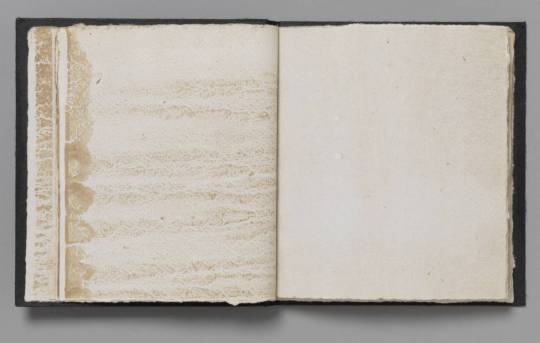
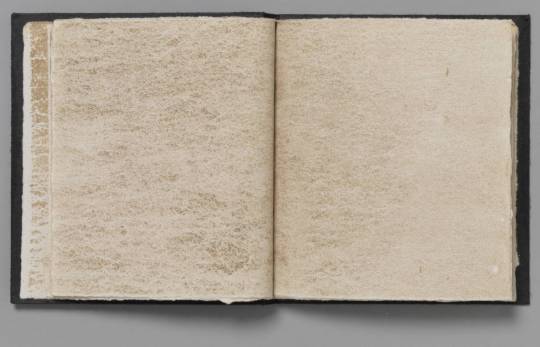

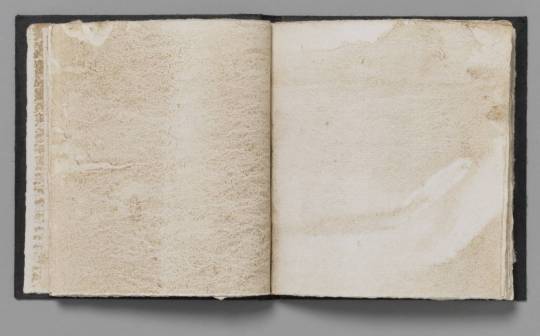
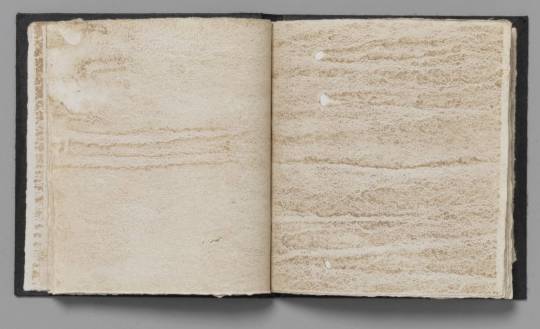
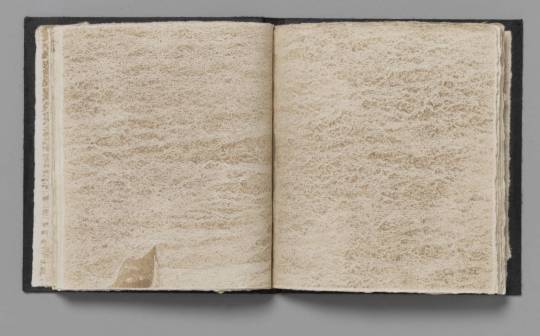


Richard Long, River Avon Book, 1979, Edition of 106 [Tate, London]
«Long created the pages of this book by dipping sheets of paper into silty wet mud taken from the River Avon in Bristol. He then hung up each sheet to allow the water to run off, leaving streaks of dried mud on its surface. […] Although he has also worked with mud taken from other rivers, Long frequently uses mud from the River Avon and has even taken it abroad for use in exhibitions. […] River Avon Book is unique due to the method of its creation, but Long used the same technique to create an edition of 106.» – Ruth Burgon, Tate, London, January 2012
411 notes
·
View notes
Photo

Joseph Cornell, Toward the Blue Peninsula: for Emily Dickinson, c. 1953
189 notes
·
View notes




